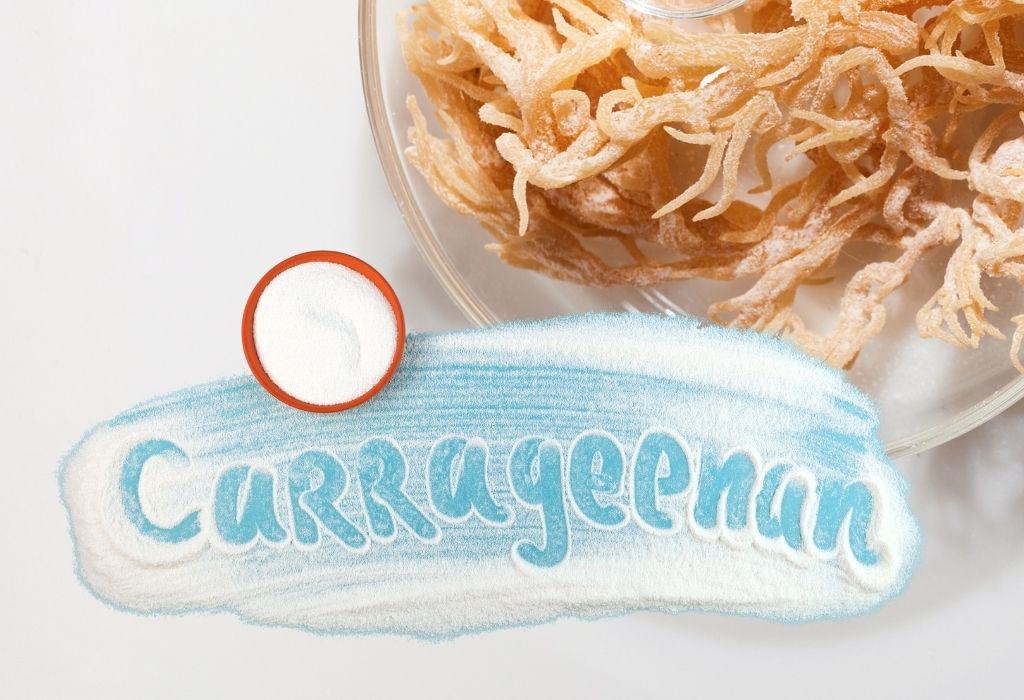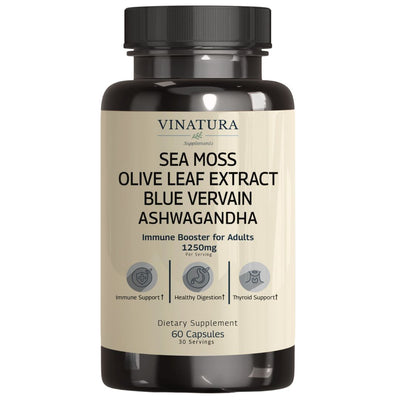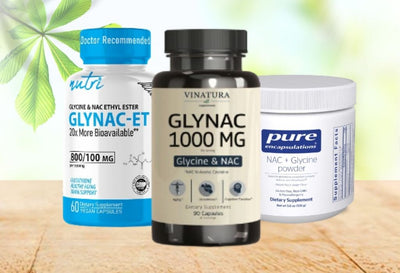
Is Carrageenan In Sea Moss Bad For You?
Sea moss is known for its numerous health benefits. This seaweed, also known as Irish moss, is rich in minerals and vitamins.
However, concerns have arisen about the presence of carrageenan in sea moss, leading to questions about its safety. This article will explore whether carrageenan in sea moss is harmful and how to use sea moss safely.
Before exploring further, please read the disclaimer located at the end of this webpage.
Key Takeaways
- Sea moss contains natural carrageenan, which differs from processed forms and is generally safe.
- Despite its carrageenan content, sea moss supports thyroid function, bone health, and digestion.
- Tips for safely incorporating sea moss into your diet include starting with small amounts and selecting quality sources.
What Is Carrageenan? Where Can You Find It?
Carrageenan is a natural substance extracted from red seaweed. It has been widely used in the food industry as a thickener and stabilizer for decades. You'll commonly find carrageenan in products like:
- Dairy products (e.g., yogurt, ice cream)
- Plant-based milk (e.g., almond milk, soy milk)
- Processed meats
- Sauces and dressings
Is Carrageenan Safe?
Despite its natural origin, carrageenan has sparked debate in the health community. The controversy primarily revolves around its potential impact on gut health. Some studies suggest that carrageenan, particularly its degraded form (poligeenan), may contribute to:
- Digestive issues: Some research indicates that carrageenan might cause gastrointestinal inflammation, leading to discomfort and conditions like inflammatory bowel disease (IBD).
- Inflammation: A study published in the journal Environmental Health Perspectives pointed out that degraded carrageenan could be linked to inflammation in the digestive tract.[1]
What Is Potassium Hydroxide?
Potassium hydroxide is a chemical compound often used in food processing. It's sometimes involved in the extraction process of carrageenan from seaweed.
While it's generally recognized as safe in regulated amounts, its use has raised questions among health-conscious consumers.
Does Sea Moss Have Carrageenan?
Yes, sea moss naturally contains carrageenan, which gives it its unique gel-like consistency. This naturally occurring carrageenan differs significantly from the processed form used as an additive in various food products. The carrageenan in sea moss is generally considered safe when consumed as a whole food.
Key Points About Carrageenan in Sea Moss:
- Natural Source
The carrageenan in sea moss is part of the seaweed's natural structure, not something added during processing.
- Whole Food Safety
Unlike processed carrageenan, which has been linked to potential health concerns, carrageenan in whole sea moss is typically safe and beneficial when consumed in moderation.
- Gel-Like Texture
The carrageenan contributes to the gel-forming properties of sea moss, making it a popular ingredient in smoothies, soups, and desserts.
Is Sea Moss Carrageenan?

It's important to understand that while sea moss contains carrageenan, it is different from the processed carrageenan found in many packaged foods.
Differences Between Sea Moss Carrageenan and Processed
| Sea Moss Carrageenan | Processed Carrageenan | |
| Natural vs. Processed | Exists in its natural form within the seaweed and is consumed as part of the whole food. | Extracted and altered from red seaweed to be used as a food additive, sometimes leading to concerns about digestive health. |
| Health Impacts | Supports various health benefits, such as boosting immune function, improving digestion, and promoting skin health. | Some studies suggest that processed carrageenan may contribute to inflammation and gut issues when consumed in large quantities or over time. |
Is Carrageenan in Sea Moss Bad for You?
With its natural carrageenan content, whole sea moss can provide anti-inflammatory and antioxidant benefits. This makes it a valuable addition to a balanced diet when consumed in moderation.
Natural carrageenan in whole foods like sea moss is less likely to cause adverse effects than its processed counterpart.
The study emphasized that context—whole food vs. additive—plays a crucial role in determining the health impact of carrageenan.
What Are the Benefits of Sea Moss for Your Health?
Sea moss is packed with essential nutrients, including iodine, calcium, and magnesium. These minerals support thyroid function, bone health, and overall well-being. Additionally, sea moss may boost immune function, improve digestion, and promote healthy skin.
Supports Thyroid Function

Sea moss is an excellent source of iodine, a mineral essential for healthy thyroid function. The thyroid gland uses iodine to produce hormones that regulate metabolism, energy levels, and overall growth.
Regular intake of iodine-rich foods like sea moss can help maintain optimal thyroid function.
Promotes Bone Health
Sea moss contains calcium and magnesium, both crucial for maintaining strong bones. These minerals work together to improve bone density and reduce the risk of osteoporosis.
The gel-like consistency of sea moss is also believed to help lubricate joints, relieving stiffness and discomfort.
Boosts Immune Function
Sea moss is packed with antioxidants that help protect the body against free radicals, which can damage cells. This immune-boosting property makes sea moss a valuable addition to a balanced diet.
Improves Digestion
Sea moss contains prebiotic fibers that promote the growth of healthy gut bacteria. This can enhance digestion, prevent constipation, and support overall gut health.
The mucilaginous (gel-like) texture of sea moss can soothe the digestive tract, making it beneficial for those with digestive issues like acid reflux.
Promotes Healthy Skin
Sea moss is rich in vitamins A, C, and E and is known for its skin-nourishing properties. These vitamins help maintain skin elasticity, hydrate the skin, and promote a youthful appearance.
The gel from sea moss can be applied topically as a natural moisturizer, helping to soothe dry or irritated skin.
What Are the Negative Effects of Sea Moss?
While sea moss offers numerous health benefits, consuming it in moderation is essential to avoid potential adverse effects.
Excessive Iodine Intake
Thyroid Health: Sea moss is exceptionally high in iodine, which is beneficial for thyroid function, but overconsumption can lead to an excessive intake of iodine. Too much iodine can cause thyroid dysfunction, including hyperthyroidism or hypothyroidism.
Daily Limits: To avoid these risks, monitoring your iodine intake is crucial, especially if you're consuming other iodine-rich foods or supplements. The recommended daily allowance (RDA) for iodine is around 150 micrograms for adults.
Contaminants and Pollutants
Concerns about Sourcing: Sea moss is commonly harvested from the ocean, which can potentially absorb contaminants such as heavy metals and pollutants from the water. Improperly sourced sea moss may contain harmful substances that can endanger health.
Ensuring Quality: To reduce this risk, buying sea moss from trustworthy suppliers who test their products for contaminants and guarantee that the sea moss is harvested from clean, unpolluted waters is crucial.Concerns about Sourcing: Sea moss is commonly harvested from the ocean, which can potentially absorb contaminants such as heavy metals and pollutants from the water. Improperly sourced sea moss may contain harmful substances that can endanger health.
- Ensuring Quality: To reduce this risk, buying sea moss from trustworthy suppliers who test their products for contaminants and guarantee that the sea moss is harvested from clean, unpolluted waters is crucial.
Digestive Discomfort
- Excess Fiber: While sea moss is beneficial for digestion, consuming too much can lead to digestive discomfort, such as bloating, gas, or diarrhea due to its high fiber content. It's best to start with small amounts and gradually increase your intake.
How to Use Sea Moss Safely
Incorporating sea moss into your diet can offer various health benefits, but it's important to use it safely to avoid potential risks. Here's how you can do so:
Start with Small Amounts
If you're new to sea moss, starting with small amounts is best. This helps your body gradually adjust to the new food and reduces the risk of any digestive discomfort.
A typical serving size is 1 to 2 tablespoons of sea moss gel daily. Begin with a lower amount and observe how your body reacts before gradually increasing the dosage.
Gradually Increase Your Intake
While sea moss is packed with nutrients, consuming too much can lead to excessive intake of certain minerals, like iodine. Gradually increasing your intake allows you to enjoy the benefits without overloading your system.
Remember that the recommended daily iodine intake is 150 micrograms for most adults. Monitor your overall iodine consumption, especially if you take iodine supplements or eat other iodine-rich foods.
Purchase from Reputable Sources
Sea moss absorbs nutrients from the ocean, but it can also absorb contaminants like heavy metals and pollutants if harvested from polluted waters. To minimize this risk, buying sea moss from reputable suppliers who test their products for purity and quality is essential.
Look for certifications or lab tests that ensure the sea moss is clean and free from harmful substances. High-quality sea moss should be wildcrafted or sourced from clean, unpolluted waters.
Incorporate Sea Moss into Your Diet

Sea moss is incredibly versatile and can be easily added to various dishes. Here are some simple ways to incorporate it into your diet:
- Smoothies: Blend sea moss gel into your morning smoothies for a nutrient boost. It pairs well with fruits, vegetables, and other superfoods.
- Soups: Add a tablespoon of sea moss gel to soups and stews. Its natural thickening properties will enhance your meals' texture and nutritional value.
- Desserts: Sea moss can be used in desserts like puddings or vegan cheesecakes. Its neutral flavor makes it a great addition without altering the taste.
The gel-like consistency of sea moss makes it an excellent thickening agent. You can prepare sea moss gel at home by soaking dried sea moss, blending it with water, and refrigerating it. This gel can then be used in various recipes.
Monitor Your Health
As with any dietary change, monitoring how your body responds to sea moss is important. If you experience any adverse effects, such as digestive discomfort or thyroid issues, consider reducing your intake or consulting a healthcare professional.
Suppose you have any pre-existing health conditions primarily related to the thyroid. In that case, it's wise to consult a doctor before adding sea moss to your diet. They can help you determine the right amount based on your health needs.
Conclusion
Sea moss is a nutritious superfood with a range of health benefits. While it does contain natural carrageenan, this should not be a cause for concern when consumed in its whole form. As with any supplement or superfood, moderation and sourcing from trusted suppliers are key to enjoying its benefits safely.
References
- [1] Kodavanti, Urmila P, et al. “Vascular and Cardiac Impairments in Rats Inhaling Ozone and Diesel Exhaust Particles.” Environmental Health Perspectives, vol. 119, no. 3, 1 Mar. 2011, pp. 312–318, ehp.niehs.nih.gov/doi/full/10.1289/ehp.1002386, https://doi.org/10.1289/ehp.1002386. Accessed 21 Aug. 2024.
Author

Product Disclaimer
The dietary supplement products mentioned on this website are formulated based on scientific research and adhere to FDA guidelines for dietary supplements. However, the content of the articles has not been evaluated by the Food and Drug Administration (FDA) and is not intended to promote or endorse any specific product. Any products sold on this website are not intended to diagnose, treat, cure, or prevent any disease.
Opinions and Endorsements
Any claims, statements, or opinions expressed in the articles are those of the author(s) and do not necessarily reflect the views or opinions of the manufacturers of the dietary supplement products. The products sold on this website are separate from the content of the articles and are not directly endorsed or associated with the information presented here.
Liability Disclaimer
The author(s) of the articles, website, and manufacturers of the dietary supplement products do not assume any liability for any potential consequences arising from the use of the information provided in the articles. It is recommended that individuals consult with a qualified healthcare professional before making any dietary or lifestyle changes, including the use of dietary supplements.
Product Usage
Please refer to the product labels and packaging for specific usage instructions and guidelines for the dietary supplement products sold on this website.
Customer Support
For any concerns or questions regarding the dietary supplement products, please contact our customer support team, who will be more than happy to assist you.






Leave a Comment
Be the first to comment.
What do you think?